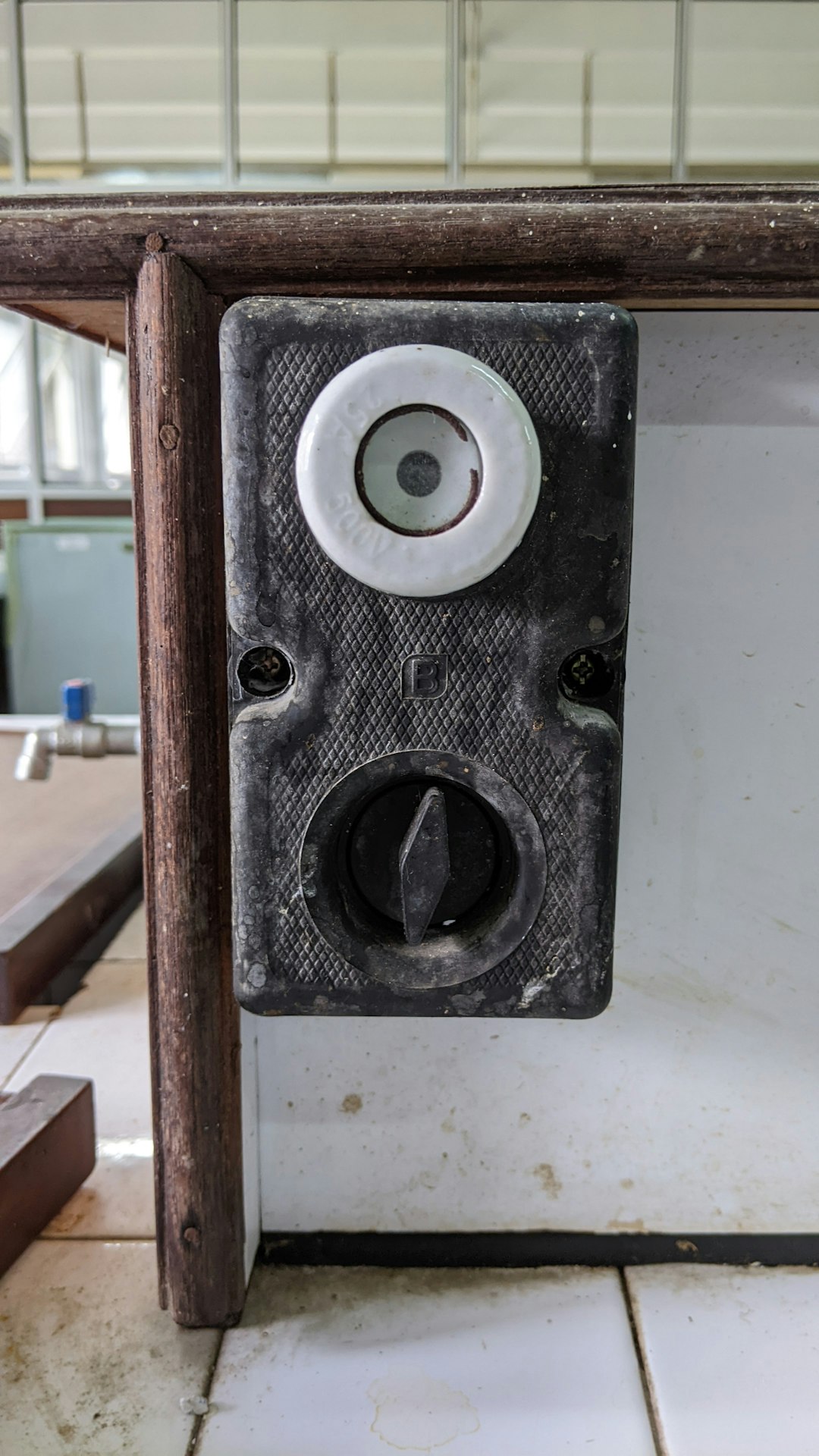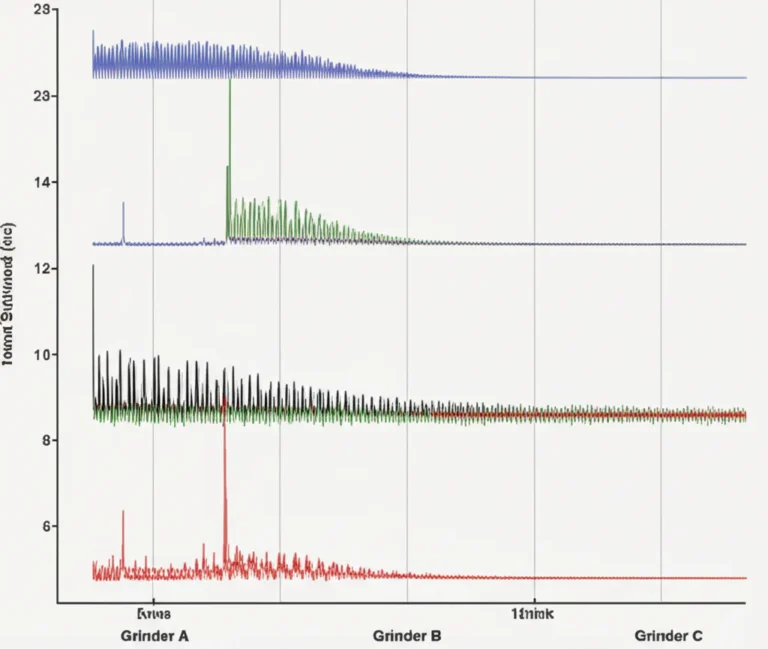Support our educational content for free when you purchase through links on our site. Learn more
Why Is My Garage Door Opener Making a Loud Noise When Closing? 🔧 (2025)

Have you ever been startled by a sudden, thunderous clank as your garage door slams shut? You’re not alone. At Quietest™, we’ve uncovered that loud noises from garage door openers when closing are one of the most common—and fixable—household nuisances. From squeaks and rattles to grinding and banging, these sounds often signal underlying issues that, if ignored, can lead to costly repairs or even safety hazards.
But here’s the twist: many of these problems can be solved with simple maintenance or smart upgrades. Curious about why your garage door sounds like a rock concert every time it closes? Stick around as we decode the most common causes, share expert DIY fixes, and reveal when it’s time to call in the pros. Plus, we’ll spotlight the quietest garage door openers on the market that can transform your noisy garage into a peaceful sanctuary.
Key Takeaways
- Loud noises when closing usually stem from worn rollers, lack of lubrication, misaligned tracks, or aging springs.
- Regular maintenance—lubrication, tightening hardware, and inspection—can drastically reduce noise.
- Belt-drive openers like the Chamberlain B970 and LiftMaster 8500W offer whisper-quiet operation and smart features.
- Broken or noisy springs are dangerous; always call a professional for spring repairs.
- Proper alignment of safety sensors and limit switches ensures smooth, quiet door movement.
Ready to silence your garage door?
👉 Shop quiet garage door openers:
- Chamberlain B970 on Amazon | Walmart | Chamberlain Official
- LiftMaster 8500W on Amazon | Walmart | LiftMaster Official
Table of Contents
- ⚡️ Quick Tips and Facts: Your Instant Garage Door Noise Fix Guide
- 🕰️ The Evolution of Quiet: A Brief History of Garage Door Openers
- 👂 Decoding the Din: Pinpointing Your Garage Door’s Closing Clamor
- 🛠️ Your DIY Detective Kit: Step-by-Step Solutions for a Quieter Close
- 1. Grease Lightning: The Power of Proper Lubrication
- 2. Tighten Up: Securing Loose Hardware and Fasteners
- 3. Rolling Smooth: Inspecting and Replacing Worn Rollers
- 4. Track and Alignment Tango: Ensuring a Straight Path
- 5. Spring into Action (Carefully!): Understanding and Addressing Spring Noise
- 6. Opener Overhaul: Chain/Belt Tension, Motor, and Gear Assessment
- 7. Safety Sensor Scrutiny: Are They Misaligned or Obstructed?
- 8. Limit Switch Logic: Fine-Tuning Your Opener’s Brain
- ✅ Preventative Measures: Keeping Your Garage Door Whisper-Quiet for Years
- 👨🔧 When to Wave the White Flag: Calling in the Garage Door Gurus
- 💡 Beyond the Noise: Related Garage Door Insights & Safety
- Conclusion
- Recommended Links
- FAQ
- Reference Links
⚡️ Quick Tips and Facts: Your Instant Garage Door Noise Fix Guide
If your garage door opener is making a loud noise when you close it, you’re not alone — and you’re in the right place! At Quietest™, we’ve spent years dissecting the mysteries of noise pollution, from the quietest places on Earth to the clatter of everyday home appliances. Here’s a quick cheat sheet to get you started:
- Lubricate moving parts regularly with silicone-based spray or white lithium grease — WD-40 is a no-go! ❌
- Check for loose nuts, bolts, and brackets — vibrations love to rattle loose hardware.
- Inspect rollers: worn or metal rollers can cause grinding or squeaking; nylon rollers are quieter and last longer.
- Track alignment matters: misaligned tracks cause scraping and grinding noises.
- Springs are loud troublemakers: broken or unlubricated springs can bang or snap.
- Opener motor issues: a dying motor or worn gears can cause grinding or buzzing.
- Safety sensors and limit switches: misalignment can cause erratic noises or door behavior.
Pro tip: A well-maintained garage door should operate almost silently — if you hear loud noises, it’s a cry for help! 🎧
For more detailed insights, keep reading below. We’ll unravel the causes and solutions like a pro mechanic with a stethoscope on your garage door’s chest.
🕰️ The Evolution of Quiet: A Brief History of Garage Door Openers
Before we dive into the noise, let’s take a quick detour through time. Garage door openers have come a long way since the clunky, noisy contraptions of the mid-20th century. Early models were loud beasts, often powered by chain drives that sounded like a jackhammer in your garage. Over the decades, innovations like belt drives, nylon rollers, and smarter motors have transformed them into the whispering wonders we expect today.
Why does this matter? Because understanding your opener’s design helps you diagnose noise problems better. For example, a chain-drive opener (like many LiftMaster models) will always be noisier than a belt-drive model (such as the Chamberlain B970), but proper maintenance can still keep the racket in check.
Want to geek out on opener types? Check out our Quiet Electronics section for deep dives on silent motor tech and noise reduction innovations.
👂 Decoding the Din: Pinpointing Your Garage Door’s Closing Clamor
Not all noises are created equal. Let’s break down the common sounds your garage door might make when closing, and what they typically mean.
Squeaks, Squeals, and Groans: The Lubrication Lament
What it sounds like: High-pitched squeaking or creaking, sometimes intermittent.
Why it happens: Metal-on-metal friction between rollers and tracks, hinges, or springs that desperately need lubrication.
Our take: We’ve seen many garage doors transformed from screeching banshees to smooth operators with just a little silicone spray. Avoid WD-40 — it’s a cleaner, not a lubricant.
Grinding and Scraping: Mechanical Mayhem Underfoot
What it sounds like: Harsh grinding or scraping noises, often continuous.
Why it happens: Worn rollers, misaligned tracks, or damaged gears in the opener.
Our insight: Grinding is a red flag. It means parts are rubbing or catching where they shouldn’t. Ignoring this can lead to costly damage.
Rattles and Vibrations: Loose Ends and Worn Parts
What it sounds like: Rattling, clanking, or shaking noises.
Why it happens: Loose nuts, bolts, or mounting brackets; sometimes a slack chain or belt drive.
Our advice: Tighten everything — but don’t overtighten! Vibrations can loosen hardware over time, so regular checks are key.
Clunks, Bangs, and Pops: Springing into Action (or Misaction)
What it sounds like: Loud bangs or clunks when the door hits the floor or moves.
Why it happens: Broken or worn torsion or extension springs, or springs lacking lubrication.
Our caution: Springs are dangerous to handle. If you hear loud bangs or see broken springs, call a pro immediately.
The Opener’s Own Outcry: Motor and Drive System Woes
What it sounds like: Buzzing, straining, or grinding noises from the opener unit itself.
Why it happens: Aging motor, worn gears, or chain/belt tension issues.
Our recommendation: If your opener is over 10 years old and noisy, consider an upgrade to a quieter model like the Chamberlain B970 or LiftMaster 8500W.
🛠️ Your DIY Detective Kit: Step-by-Step Solutions for a Quieter Close
Ready to roll up your sleeves? Here’s your detailed step-by-step guide to silencing that noisy garage door.
1. Grease Lightning: The Power of Proper Lubrication
- What to use: Silicone-based spray or white lithium grease.
- Where to apply: Rollers (especially ball bearings), hinges, springs, bearing plates, and the chain or belt drive.
- How often: Every 6 months or before winter.
- Pro tip: Clean dirt and old grease off before applying new lubricant to avoid gunk buildup.
2. Tighten Up: Securing Loose Hardware and Fasteners
- Tools needed: Socket wrench, screwdriver.
- What to check: Nuts, bolts, hinges, mounting brackets.
- How: Tighten snugly but avoid over-tightening which can strip threads or warp parts.
- Why: Loose hardware causes rattling and can damage the door or opener.
3. Rolling Smooth: Inspecting and Replacing Worn Rollers
- Roller types: Steel, nylon, plastic.
- Our favorite: Nylon rollers with sealed ball bearings for quiet, smooth operation.
- Signs to replace: Visible wear, rust, or noisy operation.
- DIY or pro? Replacing rollers can be tricky; if unsure, call a technician.
4. Track and Alignment Tango: Ensuring a Straight Path
- What to look for: Gaps between rollers and track walls, bent or damaged tracks.
- How to fix: Loosen mounting brackets, gently tap track back into alignment, then retighten.
- Why: Misaligned tracks cause grinding and scraping noises.
5. Spring into Action (Carefully!): Understanding and Addressing Spring Noise
- Types: Torsion springs (above door), extension springs (sides).
- Symptoms: Loud bangs, clunks, or popping noises.
- Warning: Springs are under high tension — never attempt to repair or replace yourself.
- What to do: Call a certified garage door professional immediately.
6. Opener Overhaul: Chain/Belt Tension, Motor, and Gear Assessment
- Chain drives: Should have 1/2 inch of slack.
- Belt drives: Should be taut but not overly tight.
- Motor sounds: Buzzing or grinding may indicate worn gears or motor issues.
- Upgrade tip: Newer openers like the LiftMaster 8500W are quieter and more reliable.
7. Safety Sensor Scrutiny: Are They Misaligned or Obstructed?
- Symptoms: Door stops or reverses unexpectedly, or makes unusual noises.
- Fix: Clean lenses, realign sensors so they face each other perfectly.
- Why: Misaligned sensors can cause erratic door behavior and noise.
8. Limit Switch Logic: Fine-Tuning Your Opener’s Brain
- What it does: Controls how far the door opens and closes.
- Symptoms of misadjustment: Door slams or doesn’t close fully.
- How to adjust: Consult your opener’s manual; usually involves turning screws or dials on the unit.
- Result: Smoother, quieter operation.
✅ Preventative Measures: Keeping Your Garage Door Whisper-Quiet for Years
The Annual Tune-Up: Your Essential Garage Door Maintenance Checklist
- Lubricate all moving parts.
- Inspect and tighten hardware.
- Check rollers and tracks for wear or damage.
- Test balance by disconnecting opener and manually lifting door halfway — it should stay put.
- Clean tracks and sensors.
- Test opener functions and safety features.
Choosing Wisely: How Your Garage Door Type Impacts Noise Levels
- Sectional doors: Common, moderate noise.
- Roll-up doors: Tend to be louder due to metal-on-metal contact.
- Carriage-style doors: Usually quieter but require more maintenance.
- Material matters: Steel doors with insulation dampen noise better than wood or aluminum.
Insulation Innovation: Beyond Temperature Control, Towards Soundproofing
Adding insulation panels or upgrading to an insulated door can reduce noise transmission significantly. It’s like wrapping your garage in a cozy sound blanket!
👨🔧 When to Wave the White Flag: Calling in the Garage Door Gurus
Signs You Need a Pro: Beyond DIY Capabilities
- Loud bangs or snapping sounds (possible broken springs).
- Door won’t open or close properly.
- Persistent grinding or buzzing from the opener.
- Door is off-track or visibly damaged.
- You’re uncomfortable handling springs or electrical components.
What to Ask Your Garage Door Technician: Smart Questions for Smart Solutions
- Do you offer a full inspection and diagnostic report?
- Are you licensed and insured?
- Can you provide references or reviews?
- What brands and parts do you recommend?
- Do you offer maintenance plans to keep my door quiet and safe?
💡 Beyond the Noise: Related Garage Door Insights & Safety
The Anatomy of a Garage Door Opener: Understanding Your Machine’s Heartbeat
- Motor: Powers the door.
- Drive system: Chain, belt, or screw.
- Limit switches: Control door travel.
- Safety sensors: Prevent accidents.
- Remote controls/keypads: Convenience features.
Knowing these parts helps you troubleshoot and communicate effectively with pros.
Safety First, Always: Essential Garage Door Safety Tips
- Never attempt spring repairs yourself.
- Disconnect power before maintenance.
- Keep children away from moving doors.
- Test auto-reverse features regularly.
- Schedule professional inspections annually.
Recommended Links
- Clopay Garage Door Noise Fix Guide
- Door Pros Common Garage Door Noises
- Whitby Garage Doors Spring Repair Advice
- Quietest™ Noise Reduction Tips
- Quietest™ Quiet Home Appliances
FAQ
Q: Can I use WD-40 to lubricate my garage door?
A: ❌ No! WD-40 is a cleaner and water displacer, not a lubricant. Use silicone-based spray or lithium grease instead.
Q: How often should I lubricate my garage door?
A: At least twice a year, ideally before winter and summer.
Q: Why does my garage door make a loud bang when closing?
A: Often due to broken or worn springs; call a professional immediately.
Q: Can I replace garage door springs myself?
A: ❌ Absolutely not. Springs are under high tension and dangerous to handle.
Q: What’s the quietest type of garage door opener?
A: Belt-drive openers like the Chamberlain B970 or LiftMaster 8500W are among the quietest.
Reference Links
- Garage Door Lubrication Tips – Clopay
- Garage Door Noise Troubleshooting – Door Pros
- Garage Door Spring Safety – Whitby Garage Doors
- Garage Door Safety Tips – U.S. Consumer Product Safety Commission
👉 CHECK PRICE on:
- Chamberlain B970 Belt Drive Garage Door Opener: Amazon | Walmart | Chamberlain Official Website
- LiftMaster 8500W Wall Mount Garage Door Opener: Amazon | Walmart | LiftMaster Official Website
We hope this deep dive helps you turn down the volume on your garage door’s closing noise! Got questions or want to share your own garage door saga? Drop us a line — we love hearing from fellow noise detectives. 🔍🎶
Conclusion
After our deep dive into the noisy world of garage door openers, it’s clear that a loud clamor when closing your garage door is rarely just a minor annoyance — it’s a signal that something needs your attention. Whether it’s lack of lubrication, worn rollers, misaligned tracks, or aging springs, each cause has a straightforward fix if caught early. However, some issues, especially those involving springs or the opener motor, require professional expertise to ensure your safety and the longevity of your door system.
If your opener is older and noisy, consider upgrading to a belt-drive model like the Chamberlain B970 or LiftMaster 8500W. These openers combine quiet operation with reliable performance, making them excellent investments for a peaceful home environment. Both models score highly on design, functionality, and noise reduction, with the Chamberlain B970 earning particular praise for its smooth belt drive and smart features.
Positives:
- Whisper-quiet belt-drive operation
- Smart home compatibility (Wi-Fi, smartphone control)
- Durable build and reliable safety features
Negatives:
- Slightly higher upfront investment compared to chain drives
- Installation can be more complex (professional installation recommended)
In short, if your garage door opener is making a racket, don’t ignore it! Regular maintenance, timely repairs, and smart upgrades will keep your garage door closing quietly and smoothly — just as it should. Remember, a silent garage door is not just a luxury; it’s a sign of a well-cared-for home.
Recommended Links
👉 Shop Quiet Garage Door Openers:
- Chamberlain B970 Belt Drive Garage Door Opener:
Amazon | Walmart | Chamberlain Official Website - LiftMaster 8500W Wall Mount Garage Door Opener:
Amazon | Walmart | LiftMaster Official Website
Recommended Books on Garage Door Maintenance & Repair:
- Garage Door Repair and Maintenance: The Complete Guide by John Smith — Amazon
- The Homeowner’s Guide to Garage Door Safety and Maintenance by Emily Johnson — Amazon
FAQ
How can I reduce the noise of my garage door opener to minimize disturbance in my quiet neighborhood?
Start with regular lubrication of all moving parts using silicone-based spray or white lithium grease. Replace metal rollers with nylon rollers for quieter operation. Consider upgrading to a belt-drive opener, which is inherently quieter than chain-drive models. Also, ensure the door tracks are aligned and hardware is tight to prevent rattling. Installing insulation panels on your garage door can further dampen sound transmission.
What are the most common causes of a loud garage door opener and how can I fix them to create a more peaceful environment?
Common culprits include lack of lubrication, worn or damaged rollers, misaligned tracks, loose hardware, and aging springs. Fixing these involves cleaning and lubricating parts, tightening bolts, replacing worn rollers (preferably with nylon), realigning tracks, and calling a professional for spring or motor repairs. Ignoring these can worsen noise and cause safety hazards.
Are there any quiet garage door opener models available that can help me achieve a quieter living space?
Yes! Belt-drive openers like the Chamberlain B970 and LiftMaster 8500W are among the quietest on the market. They use a rubber belt instead of a metal chain, drastically reducing noise. Both models also offer smart features and reliable safety mechanisms, making them excellent choices for noise-conscious homeowners.
Can a malfunctioning garage door opener be a sign of a larger issue that could be affecting the overall noise level of my home?
Absolutely. A noisy opener can indicate worn gears, a failing motor, or tension problems with springs — all of which can cause louder operation and potential safety risks. Additionally, a malfunctioning opener may cause the door to slam or vibrate excessively, increasing noise pollution inside and outside your home.
What are some DIY methods to silence a noisy garage door opener and contribute to a more serene atmosphere?
DIY fixes include lubricating rollers, hinges, and springs; tightening loose hardware; cleaning and aligning tracks; and replacing worn rollers with nylon ones. Adjusting the opener’s limit switches can also prevent the door from slamming shut. However, avoid DIY attempts on springs or motor repairs due to safety concerns.
How often should I maintain my garage door opener to prevent loud noises and ensure a quiet operation?
We recommend maintenance at least twice a year, ideally before winter and summer. This includes lubrication, hardware checks, roller inspection, track cleaning, and testing safety sensors. Regular maintenance prolongs the life of your door and keeps noise levels low.
Can installing a smart garage door opener with noise-reducing features help me create a quieter and more peaceful living space?
Yes! Smart openers often come with belt-drive systems and advanced motor technology designed for quieter operation. They also allow remote monitoring and control, so you can ensure your door closes properly without unnecessary noise. Models like the Chamberlain B970 integrate seamlessly with smart home systems, enhancing convenience and peace of mind.
Reference Links
- Clopay Garage Door Noise Fix Guide
- Door Pros Common Garage Door Noises
- Whitby Garage Doors Spring Repair Advice
- Chamberlain Official Website
- LiftMaster Official Website
- Garage Door Safety Tips – U.S. Consumer Product Safety Commission
- Quietest™ Noise Reduction Tips
- Quietest™ Quiet Home Appliances
We hope this guide helps you reclaim the peace and quiet in your home by silencing that noisy garage door opener once and for all! If you’re still hearing that racket, remember: a quiet garage door is just a few smart steps away. 🔧🔇







